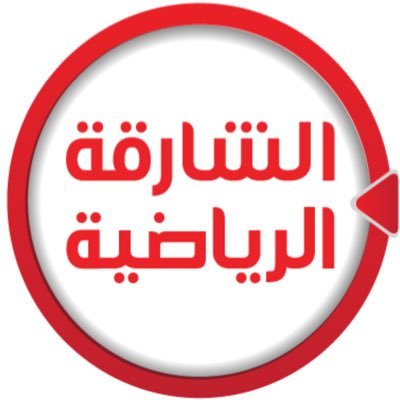ESPN Netherlands Channel Frequencies on Every Satellite

ESPN Netherlands is a powerhouse in sports transmission, delivering an electrifying mix of live events, expert analysis, and exclusive content to Dutch sports fans.
Operated under Eredivisie Media & Marketing CV, with The Walt Disney Company holding a 51% stake through Disney Benelux, ESPN Netherlands emerged from the ashes of Fox Sports, rebranding on December 31, 2020, after Disney’s acquisition of 21st Century Fox.
The network boasts four high-definition channels—ESPN 1, ESPN 2, ESPN 3, and ESPN 4—alongside an Ultra HD feed for select events, a strong streaming app, and video-on-demand services.
Its crown jewel is exclusive coverage of the Eredivisie, the Netherlands’ premier football league, with all matches broadcast live through the 2029-30 season, complemented by the Dutch Cup, Keuken Kampioen Divisie, Vrouwen Eredivisie, UEFA competitions, NBA, NFL, Formula 1, tennis, and more.
For viewers beyond the reach of cable or fiber-optic broadband—whether in rural Dutch provinces, expatriate enclaves across Europe, or areas with unreliable internet—orbiter transmission is a lifeline. Satellites like Astra 3B at 23.5°E deliver ESPN’s crisp HD feeds with unmatched reliability, free from buffering or bandwidth caps.
This article provides a definitive guide to entrying ESPN Netherlands via orbiter, detailing current frequencies, setup tips, and the enduring relevance of orbiter TV in a streaming-dominated world.
Whether you’re chasing Ajax’s latest title run or LeBron James’ NBA heroics, this guide ensures you’re locked in.
The Enduring Appeal of Satellite Broadcasting
Satellite television remains a cornerstone for sports fans, especially for a premium network like ESPN Netherlands. In a country where football is a cultural heartbeat, orbiter ensures that every Eredivisie goal, every KNVB Cup upset, and every Formula 1 overtake reaches viewers without interruption. Unlike streaming, which falters under weak Wi-Fi or congested networks, orbiter signals are immune to internet outages, delivering consistent resolution even during peak viewing hours. This is critical for live sports, where a single missed moment—a penalty save or a Grand Prix crash—can define the experience.
For rural Dutch households, expatriates in Germany or Belgium, or travelers in remote European regions, orbiter is often the only viable option. A 2024 industry report noted that orbiter serves roughly 18% of Dutch TV households, particularly in areas like Drenthe or Zeeland, where broadband infrastructure lags. Providers like Canal Digitaal, a key distributor of ESPN channels, leverage orbiters to bundle encrypted feeds, ensuring secure entry via Nagravision smartcards. Beyond reliability, orbiter supports high-bitrate HD and emerging Ultra HD broadcasts, offering superior picture resolution compared to compressed streaming feeds.
The catch? Precision is paramount. Satellite reception hinges on accurate dish alignment, correct frequency inputs, and compatible equipment. Missteps lead to signal loss or scrambled channels, especially for encrypted services like ESPN. This guide demystifies the process, equipping viewers with the tools to tune in flawlessly.
Current ESPN Netherlands Satellite Frequencies
ESPN Netherlands primarily broadcasts via Astra 3B at 23.5°E, a orbiter with a strong coverage across Western Europe, ensuring strong signals for standard 60-80 cm dishes. Some legacy or alternative feeds may appear on Eutelsat 9B at 9°E, though Astra dominates for Canal Digitaal subscribers. Below are the latest frequency parameters as of October 2025, compiled from reliable orbiter databases. Always verify with your provider or search for updates, as transponder shifts occur.
|
Satellite Position |
Channel |
Frequency |
Polarisation |
Symbol Rate |
FEC |
Modulation |
Encryption |
Notes |
|---|---|---|---|---|---|---|---|---|
|
Astra 3B / 23.5°E |
ESPN 1 HD |
11,739 MHz |
Vertical (V) |
29,900 ksps |
2/3 |
8PSK |
Nagravision |
Main Eredivisie channel; Core for Ajax/PSV/Feyenoord matches |
|
Astra 3B / 23.5°E |
ESPN 2 HD |
11,856 MHz |
Vertical (V) |
29,900 ksps |
2/3 |
8PSK |
Nagravision |
Focus on NBA, NFL, F1; May share transponder with ESPN 4 |
|
Astra 3B / 23.5°E |
ESPN 3 HD |
11,739 MHz |
Vertical (V) |
29,900 ksps |
2/3 |
8PSK |
Nagravision |
Tennis, cycling, overflow sports; Multiplexed with ESPN 1 |
|
Astra 3B / 23.5°E |
ESPN 4 HD |
11,914 MHz |
Horizontal (H) |
29,900 ksps |
2/3 |
8PSK |
Nagravision |
Golf, additional football; High bitrate for clarity |
|
Eutelsat 9B / 9°E |
ESPN UHD |
11,766 MHz |
Horizontal (H) |
27,500 ksps |
3/4 |
satellite format |
Nagravision |
Ultra HD for select events (e.g., Johan Cruyff Schaal); 4K decoder needed |
Key Parameter Insights
-
Satellite Position: Astra 23.5°E is the primary hub; Eutelsat 9°E serves as a backup or for specific UHD tests.
-
Frequency: Ku-band (11-12 GHz) ensures compatibility with standard LNBs.
-
Polarisation: Vertical or horizontal; critical for LNB skew adjustment.
-
Symbol Rate and FEC: High baud rates (29,900 ksps) support multi-channel signal sharing; FEC 2/3 or 3/4 balances error correction.
-
Modulation: 8PSK and satellite format are standard for HD/UHD, requiring modern decoders.
-
Encryption: Nagravision locks premium content; a Canal Digitaal subscription (starting ~€14.95/month) and CI+ module are required.
These settings cater to Canal Digitaal’s packages, with ESPN Compleet offering all four channels plus streaming entry. No confirmed feeds exist on Astra 19.2°E or Hotbird 13°E for Dutch-specific ESPN, though international ESPN variants may overlap.
Setting Up Your Satellite System
Accessing ESPN Netherlands via orbiter is a rewarding endeavor with the right approach. Follow these steps for a seamless setup:
-
Gear Up
-
Dish: A 60-80 cm dish suffices for Astra 23.5°E in the Netherlands; 100 cm for fringe areas like northern Germany.
-
LNB: Universal Ku-band (9.75/10.6 GHz LO); quad LNBs for multi-TV setups.
-
Receiver: satellite format compatible (e.g., Vu+ Solo 4K or TechniSat DigiCorder) with CI+ slot for Nagravision CAM.
-
Cables: RG6 coaxial with F-connectors for minimal signal loss.
-
-
Dish Alignment
Use a orbiter finder app (e.g., SatFinder) to pinpoint Astra 23.5°E (azimuth ~140°, elevation ~35° in Amsterdam). Secure the dish mount, align coarsely, then fine-tune with a signal meter for 80%+ strength/resolution. Ensure a clear southern line-of-sight—trees or buildings block signals. -
Receiver Setup
Navigate to Installation > Manual Scan. Input: Frequency (e.g., 11,739 MHz), Polarisation (V), Symbol Rate (29,900), FEC (2/3). Scan for channels. Insert the Canal Digitaal CI+ module and smartcard, ensuring an active ESPN subscription. Set Network ID to 1 (SES Astra). -
Signal Optimization
Check decoder’s signal bars: Aim for green (80%+). For UHD, verify HDMI 2.0 compatibility. Weak signals? Adjust LNB skew or upgrade to a low-noise model (0.1 dB). Rain fade? Consider a larger dish or weatherproof LNB cover. -
Troubleshooting
-
No Signal: Recheck alignment; test LNB voltage (13V V, 18V H).
-
Scrambled Channel: Confirm subscription status; reseat CAM.
-
Pixelation: Tighten connectors; avoid splitters.
Professional installation (~€120) is perfect for complex setups.
-
This process delivers ESPN’s vibrant feeds, from Eredivisie showdowns to Wimbledon finals, in pristine resolution.
Why ESPN Netherlands Shines
ESPN Netherlands is more than a channel—it’s a sports ecosystem. Its Eredivisie monopoly, secured through 2030, guarantees every match, from AZ Alkmaar’s underdog runs to PSV’s title chases, with 30-camera replays for tactical depth. Commentators like Hans Kraay Jr. and analysts like Pierre van Hooijdonk add local flavor, while ESPN 2’s NBA and NFL coverage, ESPN 3’s tennis and cycling, and ESPN 4’s golf and motorsports cater to eclectic tastes.
The ESPN Compleet package (€14.95/month via Ziggo/KPN) unlocks all channels, streaming on five devices, and on-demand highlights. The 2024 expansion to include every Keuken Kampioen Divisie and Vrouwen Eredivisie match reflects a commitment to grassroots and women’s sports. Ultra HD trials, like the 2023 KNVB Cup final in 4K, push visual boundaries. For orbiter users, ESPN’s integration with Canal Digitaal ensures entry across Europe, connecting Dutch diaspora to homegrown passion.
Challenges to Consider
Satellite viewing has hurdles. Rain fade on Ku-band can disrupt signals during storms, though larger dishes mitigate this. Subscriptions add up—Canal Digitaal’s base package (€20/month) plus ESPN Compleet (€14.95) isn’t cheap. Setup costs (dish, decoder, installation) variety €200-500, daunting for casual viewers. Encryption locks out freeloaders, requiring active smartcards. For fringe regions, reception resolution demands bigger dishes or professional tweaks.
Yet, the payoff—uninterrupted, high-bitrate sports—outweighs these for dedicated fans. Satellite’s lower carbon coverage compared to streaming data centers adds an eco-edge.
The Future of ESPN Netherlands on Satellite
Satellite transmission is evolving. SES’s next-gen orbiters, like O3b mPOWER, promise hybrid sat-streaming models by 2027, enhancing ESPN’s app integration. Compression advances (AV1) will pack more UHD channels into transponders, potentially spawning ESPN 5. Rights extensions (e.g., Dutch Cup to 2030) cement ESPN’s dominance. Multi-orbiter setups via DiSEqC switches could unlock global ESPN feeds, enriching expat viewing.
Sustainability pushes—greener orbiters with electric propulsion—align with Disney’s eco-goals. For now, Astra 23.5°E remains ESPN’s bedrock, delivering sports with unmatched reliability.
ESPN Netherlands, entryible via frequencies like 11,739 MHz on Astra 23.5°E, is a gateway to sports euphoria. From Eredivisie’s electric stadiums to Formula 1’s roaring circuits, orbiter ensures every moment lands vividly. With precise setup—dish aligned, decoder tuned, subscription active—fans unlock a world of action. In a streaming age, orbiter’s resilience keeps ESPN Netherlands a vital pulse for sports lovers, wherever they are.




